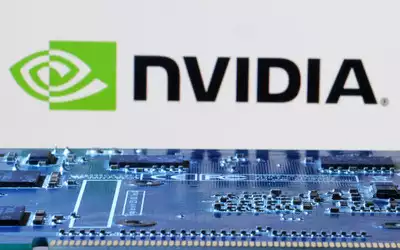Occupying the top floors of a modest office building in northern Mumbai, Shreya Life Sciences appears much like any other business fueling the busy Andheri neighborhood. Yet, this inconspicuous pharmaceutical company is a central player in a high-stakes trade in advanced technology to Russia—an intermediary role drawing concern from the US and its European allies.
A Bloomberg analysis using trade data from ImportGenius and NBD reveals that Shreya Life Sciences exported 1,111 of Dell Technologies’ PowerEdge XE9680 servers to Russia between April and August 2024. These servers, equipped with Nvidia’s H100 AI-optimized chips, are subject to US and EU restrictions due to their potential applications in Russia’s military sector. Still, shipments valued at around $300 million were legally delivered to Russian companies Main Chain Ltd. and I.S LLC.
The exports highlight gaps in Western efforts to curb Moscow’s access to dual-use technology. India, now the second-largest supplier of such technology to Russia after China, has become a key intermediary despite pressure from Western governments urging it to block such trade. Ukrainian officials, including President Zelensky’s chief of staff Andriy Yermak, have criticized this trade, asserting that components still reach Russia despite sanctions, affecting Ukrainian lives.
Trade data indicates Malaysia as the origin for these high-tech exports, while India primarily functions as the transit point. Records show 1,407 Dell servers arrived in India from Malaysia between March and August 2024. Malaysian officials did not respond to inquiries, and Dell noted it stopped sales and support in Russia in early 2022, maintaining compliance with global sanctions.
India’s official stance reflects adherence to national laws, with no obligation to uphold Western sanctions on Russia. However, the country has conducted investigations following US concerns over dual-use technology sales. Shreya Life Sciences, which began as a pharma distributor in Russia during the 1990s, continues to rely heavily on Russian markets, even as it diversifies into the tech trade.
Records reveal Shreya’s dependency on Russia extends to financial support from Promsvyazbank PJSC, a state-owned Russian bank supporting the defense sector. The bank’s backing helped sustain Shreya through a downturn in 2014 and 2015 when Western sanctions and a collapsing ruble affected business. Although financial relief from this lender stabilized the company, questions over its operations arose in 2019 when local inspectors flagged some of its pharmaceuticals as substandard.
Since September 2022, Shreya has exported a range of tech products to Russia, with Dell servers accounting for substantial shipments beginning in April 2024. The move underscores how complex, often untraceable global trade networks facilitate dual-use technology transfers, challenging efforts to limit advanced technology sales with potential military applications.




